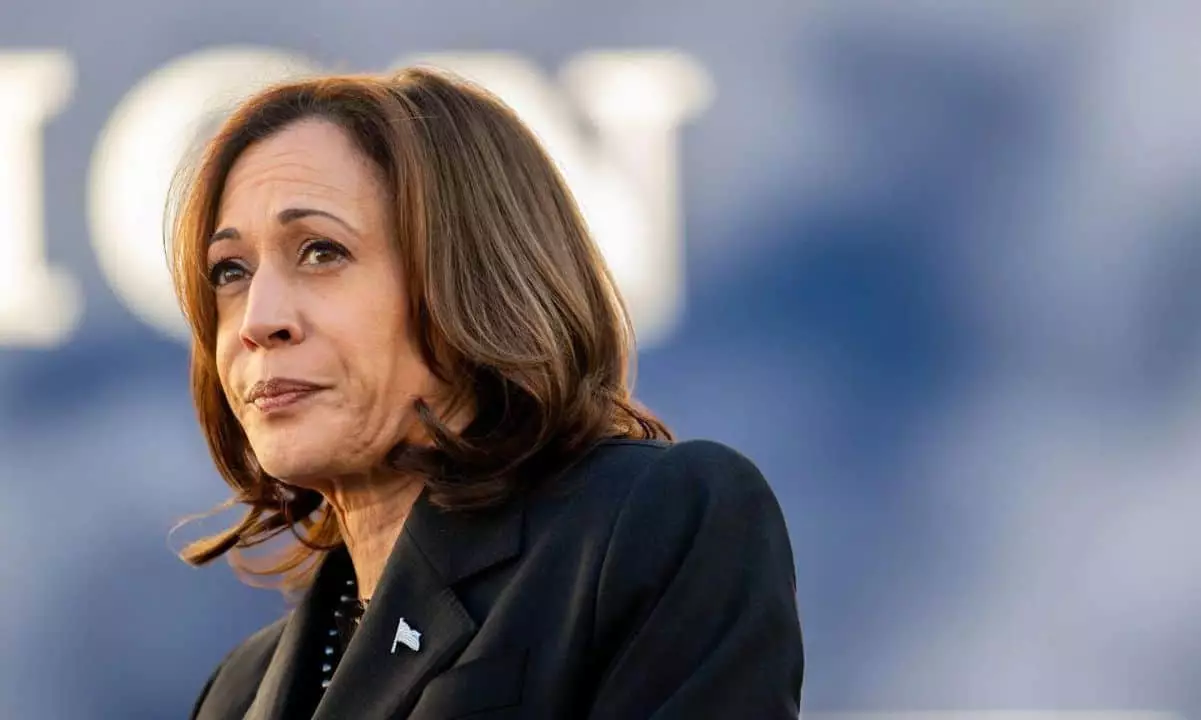In recent months, the intersection of politics and cryptocurrency has become a significant area of interest, particularly for platforms that seek to gauge the level of support candidates have for the digital asset movement. A notable example is the lobby group Stand With Crypto, supported by industry leader Coinbase, which has faced scrutiny for its rankings of political figures based on their perceived favorability towards crypto. Initially, the group awarded Democratic presidential candidate Kamala Harris a favorable “B” grade, classifying her as a supporter of cryptocurrency after her remarks at a fundraising event. This enthusiastic endorsement, however, was met with skepticism and critique that led to a swift reevaluation.
At a New York fundraiser on September 22, Harris made statements reflecting a general enthusiasm for innovative technologies, including digital assets. Her pledge to streamline bureaucratic processes resonated with many in the cryptocurrency community who have long perceived regulatory red tape as an impediment to innovation. Nonetheless, industry insiders noted the ambiguity of Harris’s statements; with only a single mention of crypto, some saw her words as more of a political nod than a firm commitment. Enthusiasts, like Bitcoin proponent Wayne Vaughan, characterized her contribution as “neutral,” arguing that the Biden-Harris administration’s historical reservations about cryptocurrency should not qualify her for a high ranking.
The assessment by Stand With Crypto demonstrated potentially flawed logic in its ranking system. While Harris’s language could be construed as mildly positive, it lacked the substantiality exhibited by more vocal advocates in the political sphere, such as former President Donald Trump. Trump received an “A” grade on the platform, thanks to a slew of explicit statements advocating for cryptocurrencies, thus spotlighting a disparity in meaningful engagement between the two parties. The shift in Harris’s rating was not only a reflection of her stance but also showcased the larger implications political positions have on the emerging crypto landscape.
As soon as the rank was announced, the response from experts within the cryptocurrency realm was largely negative. Critics such as Michael Cairo, a lawyer specializing in crypto law, articulated concerns that the ranking was not merely misguided but potentially damaging, suggesting that it misrepresents an influential political figure’s actual stance. Further, the claims made by venture capitalist @HelpedHope illustrated a fear that the lobby may have been trying to curry favor with multiple political factions to ensure some level of influence or negotiation power, should Harris gain higher office.
This paradigm raises an important question: how ought advocacy groups handle the political landscape in relation to digital assets? The debate signifies a pivotal moment where the industry requires clear solidarity with candidates, while advocating for distinct progress in regulatory frameworks.
Following this backlash, Stand With Crypto recognized the necessity to amend its scoring system and reassess its criteria for evaluating political support. Executive Director Logan Dobson took to social media to clarify the organization’s intent moving forward. Notably, the new framework emphasizes a moving target—the demand for a more rigorous analysis before attributing a grade to candidates. This pivot is indicative of a greater awareness within the group about the intricacies of crypto politics; it recognizes that meritorious engagement necessitates depth and clarity rather than superficial endorsement.
Harris’s profile was subsequently updated to reflect this new approach, indicating a transition towards a more nuanced understanding of political statements regarding digital assets. The phrase “needs more information” now categorizes those candidates who have not sufficiently articulated a clear stance on cryptocurrency.
As the U.S. approaches electoral events amidst an evolving crypto landscape, the importance of critically analyzing the statements of political figures cannot be overstated. The case of Harris and the subsequent reevaluation by Stand With Crypto serve as a reminder that the dialogue surrounding digital assets must be robust and well-substantiated. Moving forward, the cryptocurrency community must advocate for transparency and commitment from political leaders, ensuring their investments and hopes for the future are supported by individuals who genuinely support the principles of innovation and transparency inherent in the world of digital finance.

